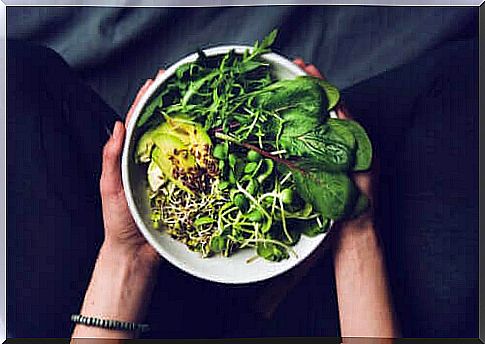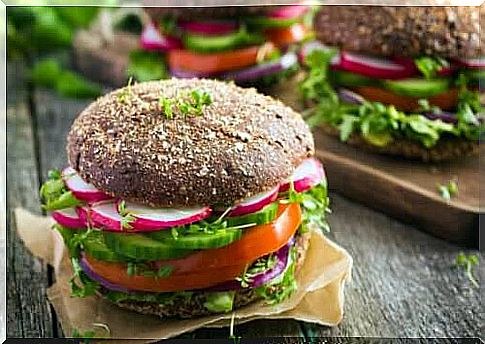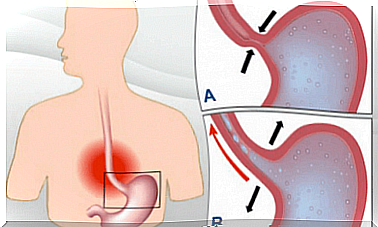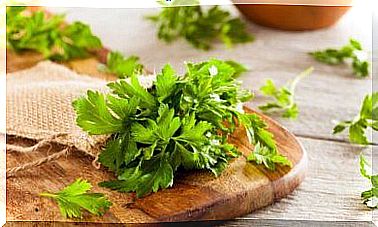The Differences Between The Terms Vegan, Vegetarian And Flexitarian

You may have heard the terms vegetarian, vegan and flexitarian before, but you may not fully understand what they mean. They all seem to be about eating plant-based foods, so what’s the difference? Read on to find the answer!
Fruits and vegetables have a priority in this type of eating preference. Many people follow this type of diet out of respect for the animals or due to other environmental concerns. Today we are going to tell you more about this topic.
The difference between being vegan, vegetarian and flexitarian
These diets are becoming more and more popular for many different reasons. There are some distinctive features that describe the intake and lifestyle of each group. Let’s find out what they are.
Vegan
These people base their diet entirely on fruits and vegetables. That is, they do not consume animal products such as dairy products and their derivatives, eggs or honey. However, the term “vegan” goes beyond this and actually refers to a lifestyle that includes a particular way of eating.
This lifestyle stems from the ethical and moral rationale that all species are equally valuable. Vegans thus reject animal cruelty and exploitation and do not use products that originate from animals or are made by companies that experiment on animals.
They are also against other forms of animal exploitation such as zoos, horse racing, circuses and rodeos. In addition, they are aware of the environmental impact of farms and animal husbandry.
Several studies have also shown that animal husbandry massively utilizes natural resources, increases the greenhouse effect, makes the soil acidic and accumulates excess waste in rivers and oceans.

Vegetarians
This type of diet is based on plant-based foods, but can also include dairy products, eggs and honey. In that sense , meat and its derivatives are the only foods that are completely excluded.
According to Sociedad Argentina de Nutrition , there may be different subgroups within this group. The best known of these is ovo-lacto-vegetarianism, but we also have an ovo-vegetarian diet, which excludes milk and its derivatives. In addition, we have lacto-vegetarians, where those who follow this diet do not eat eggs.
Some choose to follow a vegetarian diet for the rest of their lives, and others do so because they aim to do without all the animal products. It can be said that this is a fairly necessary step to reach veganism.
Flexitarians
This style of eating is all about flexibility. In fact , this group consists of all people who generally follow a vegetarian diet, but who eat meat once in a while.
This group includes those who do not always eat meat or who prefer one type over another. It is also usually the first step towards a vegetarian diet.
As you can see, this lifestyle has become more popular in recent times. You can actually be a flexitarian without knowing it. Let us note that this type of lifestyle does not view eating animals as a transgression, so it does not lead to guilt.
Are these eating preferences safe?
Many years ago, people believed that diets that did not contain animal products lacked important nutrients. However, scientific evidence suggests that even a well-planned vegan diet lacks vitamin B12.
Vitamin B12 is the result of the synthesis of microorganisms that live in the intestines of animals. For this reason, meat, eggs, milk and its derivatives are the only foods that contain this vitamin.
The daily amounts recommended by professionals are not met in vegetarian and flexitarian diets, despite the fact that these people sometimes consume animal foods.
As a consequence, long-term deficiencies of this vitamin can cause anemia, deficiencies in the nervous system, delay in fetal development, memory loss and other complications. This is why doctors recommend supplements to prevent complications.

The difference between the terms vegan, vegetarian and flexitarian
As you can see, these eating styles are quite different. We can say that flexitarism is the beginning of a lifestyle that can develop into vegetarianism, and then into veganism if you will. However, one can skip these steps and go directly there.
Finally, no matter what diet you follow, you need to plan it carefully so that it is well balanced and contains all the nutrients you need. Failure to do so will result in future deficiencies and health problems. You should always talk to your doctor and a nutritionist for advice.









